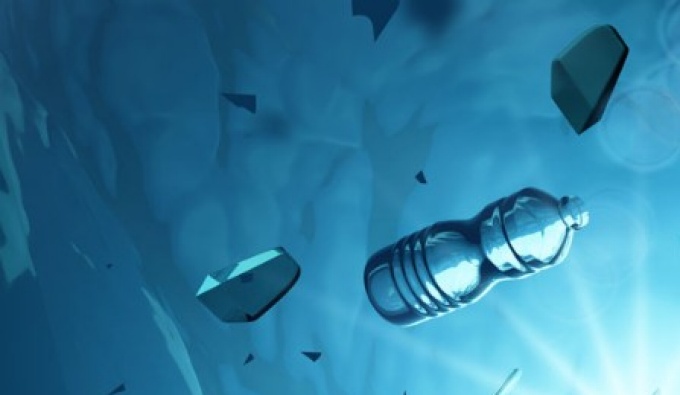Here is how we are improving plastics recycling

The DEC awarded UB $4.5 million to create a new research center to boost plastic recycling and reduce waste, which will improve the environment and fight climate change.
The award will support the New York State Center for Plastic Recycling Research and Innovation at UB.
The center expands upon a partnership between the DEC and UB that focuses on reducing plastic waste, while also improving the environment and fighting climate change in New York and beyond.
"The reduction of plastics and other waste is critical to creating a cleaner environment and achieving the goals of the Climate Leadership and Community Protection Act. The initial DEC partnership with UB has been so successful that several companies and other academic institutions have reached out to the university about the plastics recycling research underway,” said DEC Commissioner Basil Seggos.
He added: “Governor Hochul’s addition of resources will bolster our continuing efforts to become a trusted resource for plastics recycling information for businesses and municipalities across the state and become a world-recognized authority in plastics recycling research and innovation.”
“The University at Buffalo is committed to addressing regional as well as global environmental challenges through multidisciplinary scholarship and innovation. By working with partners such as the New York State Department of Environmental Conservation, we will advance the science and technology of plastics recycling while increasing our impact in promoting a healthier and more equitable environment in New York State and beyond,” said Kemper Lewis, dean of the School of Engineering and Applied Sciences.
Initiative for Plastics Recycling Research and Innovation
The Initiative for Plastics Recycling Research and Innovation consists of a team of university researchers and senior scientists, as well as recycling industry experts and DEC employees. Its work will integrate the social sciences, economics, communication, engineering, plastics and materials science.
Researchers will study how to develop secondary recyclable markets to ease the costly burdens on municipal recycling programs, as well as best practices for streamlining the recycling process, especially with certain types of lower-grade plastics. Additionally, the center will focus on:
- Mapping the reverse supply for plastics in New York State, and conducting a deep dive into the structure of the collection, disposal and recycling industries;
- Improving the efficiency of businesses involved in collecting and processing plastics in New York State;
- Researching plastics in natural environments;
- Researching plastics in New York State agriculture/food and medical industries;
- Understanding public knowledge and attitude toward recycling;
- Advancing high-speed plastic sorting by molecular contract infrared imaging;
- Undertaking several innovative academic- and community-based, transformative seed projects.
Amit Goyal, SUNY Distinguished Professor and SUNY Empire Innovation Professor in UB’s Department of Chemical and Biological Engineering, will serve as the project’s principal investigator and the center director.
“Prudent investments such as this from the New York State Department of Environmental Conservation will ensure that New York State plays a leadership role to develop innovative strategies for plastics recycling and help make recycling initiatives more effective. We are very grateful to DEC staff, Commissioner Seggos and Governor Hochul’s office for their leadership and partnership with academia to enable a cleaner, greener Empire State for all,” he said.
“UB’s team is uniquely positioned to develop innovative solutions for the plastics recycling. We are excited to expand on our current project with the DEC on assessing and improving plastic recycling as well as developing outreach and educational programs. We look forward to embarking on this new initiative on plastics recycling and innovation,” he said.
Funding for the center comes from the state Environmental Protection Fund (EPF). Among the many environmental victories in the 2022-23 state budget, Hochul succeeded in enacting an increase in the EPF from $300 million to $400 million, the highest-ever level of funding in the program's history. The EPF supports climate change mitigation and adaptation efforts, improves agricultural resources to promote sustainable agriculture, protects our water sources, advances conservation efforts, and provides recreational opportunities for New Yorkers.
The announcement builds upon the state’s comprehensive waste management efforts to address the impacts of New York’s solid waste on climate change and the current burden on municipalities by reducing the amount of materials sent to landfills and combustors and significantly increasing waste reduction, reuse, and recycling.

